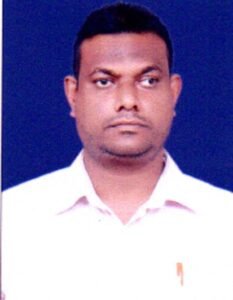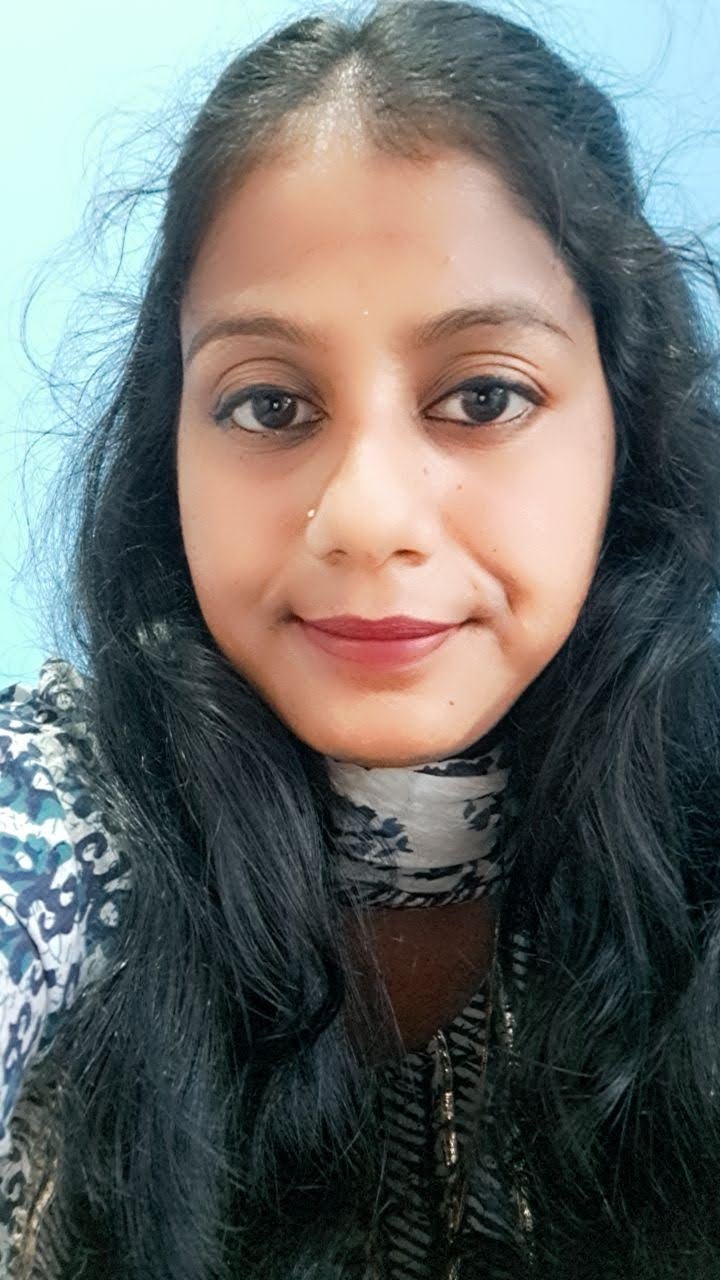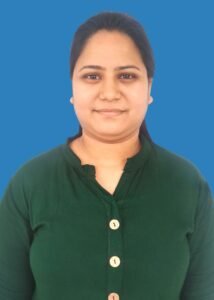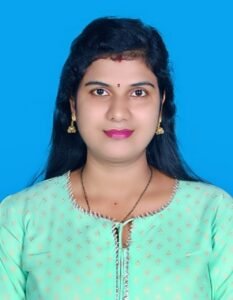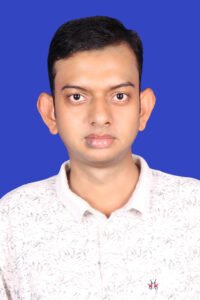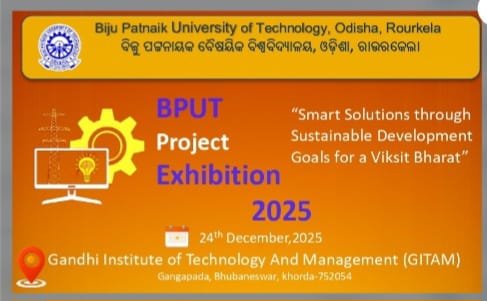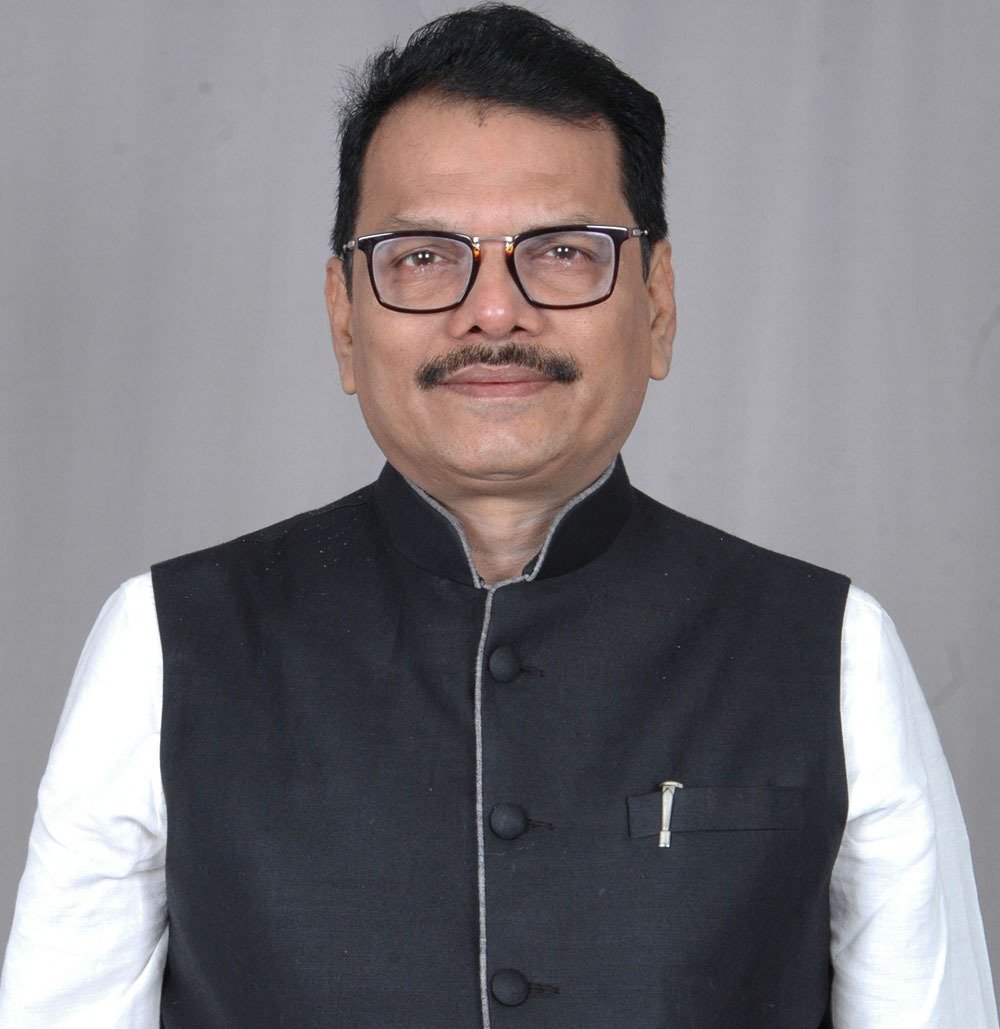
Welcome to the department of Computer Science &Engineering, GANDHI INSTITUTE OF TECHNOLOGY AND MANAGEMENT, BHUBANESWAR. Department works with the objective of addressing critical challenges faced by the industry, society and the academia. Perhaps even more important is our unceasing commitment to our students, helping them to learn, grow, develop, and achieve their goals in their pursuit to excel in their professional career.
The department faculty work with excellent team spirit in different technical teams which lead to key research publications in these areas. Department strives to provide a conducive environment for the students to develop analytical and practical skills and apply them to real world problems. To motivate the students the department organizes regular training in state of art software & hardware, arranges workshop, technical events, seminars etc.
We welcome you to the Computer Science and Engineering Department as a promising student and we hope to be part of your success.
Dr. R.N. Behera
HOD, Department of Computer Science & Engineering
The Department of Computer Science and Engineering at GITAM is renowned for imparting state of the art undergraduate education and preparing its students for real world challenges. Our alumni have done extremely well and the list of their achievements is too big to list here, which include managing top companies, designing revolutionary products, and contributing to fundamental research.
To establish a dynamic learning-based environment that produces professional leaders in emerging areas of computer science and engineering
Research Facilities
The department of Computer Science and Engineering (CSE) was established in the year 2008 with B.Tech program in CSE with due approval from AICTE. In these 16 years, the department is expanded to offer four B.Tech programs in Computer Science & Engineering and its emerging areas.From the year 2024 with the approval of AICTE, New Delhi the department will offer B.Tech programs in the following emerging areas of Computer Science and Engineering.
The department of CSE aims to expertise in computation through strong knowledge of algorithms, data structures, and coding skills in programming languages like Python, C, Java and open source technologies, Data centric and secure application development, Artificial Intelligence, cloud and big data technologies.
The main objectives of department are to provide:
The department has 11 academic laboratories like Python programming, programming for problem solving using C, data structures, programming with objects, Design and analysis of Algorithms, database management systems, Web Application Development, Linux Programming, Data Mining and Analytics, Software Design and testing, Cloud Application Development etc. the infrastructure and lab facilities are upgraded from time to time and provide good practical learning and innovative environment for the students and researchers.
The students are nurtured with a variety of active learning activities including and not restricted to class room teaching, presentations, video lectures, MOOC courses, experiential learning and online courses in SWYAM Portal and IBM Skill build platform.
Computer Society of India’s students’ chapter of GITAM for conducted activities on career development, interpersonal and intrapersonal skills of students. It organizes Seminars, Quiz’s, Industrial Visits, Paper / Poster Presentations, Group Discussions, Guest Lectures, Career Guidance, Coding Games etc. under its various Student clubs.
Student Chapters of various professional bodies like Computer Society of India (CSI)and Indian Society for Technical Education (ISTE), provide unique opportunities for networking, mentoring and bonding over common interests.
History of the Department :
B.Tech. (Computer Science & Engineering)
Tech. CSE (Artificial Intelligence and Machine Learning)
Tech. (Computer Science & Engineering)
Courses offered
The department of Computer Science and Engineering (CSE), established in the year 2008 is offering four B.Tech programs of four year duration. The details of the programs / courses currently offered are as follows:
Our courses are constantly updated to keep pace with the latest advancements in technology, ensuring that our graduates are well-prepared to tackle real-world challenges and contribute meaningfully to the field of computer science and engineering.
| Sl no | Names of Programme / Course | Intake | Year Introduced |
|---|---|---|---|
| 1 | B.Tech Computer Science and Engineering (CSE) | 120 | 2008 |
| 2 | B.Tech CSE (Artificial Intelligence and Machine Learning) | 60 | 2024 |
Vision :
To establish a dynamic learning-based environment that produces professional leaders in emerging areas of computer science and engineering
Mission :
Program Specific Outcome’s (PSOs):
Program Educational Objectives(PEO)
The Department of Computer Science and Engineering is equipped with 17 computer labs that are fully air-conditioned, 510 modern Intel core i3/i5 machines that run Linux and Windows, and a server room that houses rack servers (blade servers). The department has enough computer resources to support students receiving top-notch instruction in computer programming. All of these computer resources are linked together via a fast intranet that provides 100 Mbps Internet access to the outside world. The peripherals, which include DMP, printers, scanners, and more, provide the lab with sufficient assistance.
Detail of various laboratories and their facilities are as follow:
PROGRAMMING IN C & DATA STRUCTURE
PROGRAMMING IN C & DATA STRUCTURE
The primary goal is to examine basic data structures, including their design, application, and efficiency, and to comprehend how the selection of data structures can result in the effective application of algorithms to solve issues. Students will expand their Python programming abilities in data structure implementations through this lab.

OOP USING JAVA
The fundamental ideas of object-oriented programming—objects, classes and subclasses, methods—as well as how to express them in Java are reinforced in this lab. In addition to writing basic Graphical User Interface (GUI) interfaces for computer programs to communicate with users, students can analyze and build object-oriented computer programs to solve real-world problems. They can also comprehend the concepts of event-based GUI management.


PROBLEM SOLVING & PYTHON PROGRAMMING
The purpose of the Python Programming Lab is to acquaint students with the fundamentals of programming so that they can be introduced to the field of programming languages. Students who complete this lab will be able to design, build, test, and document structured Python programs. It is anticipated that following that, pupils will be able to independently study any programming language.


DESIGN & ANALYSIS OF ALGORITHM
Students will be able to use a variety of design strategies to tackle algorithm-based challenges. They will be able to evaluate and contrast the performance of various algorithms analytically, as well as utilize past understanding of common algorithms to solve new issues. They will be able to write succinct technical articles outlining the solutions and supporting their validity.

COMPUTER ORGANIZATION & ARCHITECTURE
The computer organization & architecture lab provides hands-on experience in understanding the structural and functional aspects of computer systems. Students explore the intricacies of CPU design, memory hierarchy, and data paths through practical exercises. The lab includes simulations and assembly language programming to illustrate core concepts. It enhances comprehension of how software interacts with hardware to perform complex tasks. Overall, the lab bridges theoretical knowledge and practical skills in computer engineering.
FORMAL LANGUAGE & AUOTOMATA THEORY
Under the direction of faculty members, this lab has given research associates and students a place to carry out research-based initiatives. Students pursuing B.Tech and M.Tech degrees have made full use of the facilities for project and research work. The project’s output includes publications in a number of journals and conference proceedings (both domestically and internationally). Both teachers and students now have access to a learning platform thanks to the center.

Database Management Systems Laboratory
These days, having an automated system that correctly maintains, updates, and adjusts data is a must. A Database Management System (DBMS) does this in a reliable, accurate, and non-redundant manner. Students will learn about the database environment and data management techniques through the DBMS laboratory. Students get an introduction to Oracle Software. Additionally, students will receive training for obtaining Oracle and advanced database certifications.

OPERATING SYSTEM
An Operating System (OS) lab provides hands-on experience with the fundamental concepts and functionalities of operating systems. Students learn to manage system resources, handle processes, and implement scheduling algorithms. The lab exercises often include writing and debugging kernel code, developing device drivers, and working with file systems. Through practical experiments, students gain insights into system performance and security. These labs are essential for understanding how software interacts with hardware and for developing skills in systems programming.

SOFTWARE ENGINEERING
A Software Engineering lab is a dedicated environment for students and professionals to practice and enhance their skills in software development. It typically includes workstations equipped with the latest development tools, software, and collaborative platforms. The lab facilitates hands-on learning through coding exercises, project development, and software testing. It also provides a space for teamwork, allowing participants to engage in pair programming and agile methodologies. Overall, the lab environment fosters innovation and the practical application of theoretical concepts learned in the classroom.

Project & Research Lab
Students and research associates can now carry out research-based projects under the direction of faculty members thanks to this lab. B.Tech students have made full use of the facility for their projects and research work. Publications in several journals and conference proceedings (at both national and international levels) are the project’s output. For teachers and students alike, the center has offered a learning platform.


COMPILER DESIGN
The COMPILER DESIGN lab provides hands-on experience in building and understanding compilers. Students learn to implement lexical analyzers, parsers, and code generators. The lab emphasizes converting high-level programming language code into machine code. Key concepts such as syntax analysis, semantic analysis, and optimization are explored. Practical projects enhance skills in developing efficient and effective compilers.

Research Facilities
To strengthen and support the research-related needs of the numerous departments operating under GITAM College, the college’s Research wing engages with a variety of educational, research, and industrial organizations.
Academics’ foundation is research. In pursuit of a new era of research passion, it streamlines concept building and turns new ideas into discoveries. Every discovery is immensely satisfying and increases motivation to reach the goal.
There are a lot of unanswered questions in the body of knowledge that can only be cleared up or made simpler by diligent, ongoing investigation. In order to completely coordinate with appropriate departments, GITAM College has already set up separate research wings with adequate infrastructure support, including well-equipped laboratories, 24-hour internet access, a resource-rich library with many higher-ranking national periodicals, an e-library, etc.
The CSE Department bears the responsibility of offering opportunities for progressive Training that enhance personal and professional competencies, bolster the institution’s mission and objectives, support departmental training needs, and encourage lifelong learning for all faculty, staff, and students.
Research and Education Centers
The following centers are established to allow faculty and students to share facilities, equipment, ideas, and innovation.
Program Assessment and Quality Improvement Committee (PAQIC)
The departmental academic committee is responsible for smooth functioning and monitoring of all academic activities.
Composition
Members to the PAQIC (UG) will be opted covering each specialization of the department. In very small departments one or more faculty members of other departments may be opted by the HOD with approval of Dean of Academic. One or more external members may be opted by the Convener, PAQIC on specific occasions such as making the syllabus for value added courses. The tenure of the departmental academic committee shall be two years. The composition of the DAC shall need approval of the Principal. The present composition of the PAQIC is as follows
| Sl. No | Name of the member | Designation | Status |
|---|---|---|---|
| 1 | Dr. RABINDRA NARAYAN BEHERA | Professor & Head, CSE Department | Chairman |
| 2 | Dr. RABINARAYAN SATPATHY | Professor | Convener |
| 3 | Dr. SUKANTA KUMAR DAS | Professor | Co-Convener |
| 4 | Mr. MOHAMMED ARIF | Associate Professor | Member |
| 5 | Mr. SUNANDA KUMAR SAHOO | Associate Professor | Member |
Roles and Responsibilities of PAQIC
The PAQIC will meet at least once in a month. Faculty mentors and other members of the faculty may be invited to meetings when necessary. The PAQIC will seek and review the reports of all course handling faculty and faculty mentors and submit its reports to HOD for remedial action if so needed. The PAQIC’s recommendations may, if situation so demands to be discussed and amended by a meeting of the total faculty in a department.
Course Expert Team (CET)
The course expert team bears the primary responsibility for utilizing their central domain of expertise in the development, renewal, and upmost professional standards assessment of the curriculum’s efficacy and quality.
The functions of the course expert team are to:
| S.no | Course specialization | Course | NAME | Designation |
| 1 | Computer networks and network security |
| DR. RABINDRA NARAYAN BEHERA | Convener |
| MRS. NILAM SIMIRAN | Member | |||
| MS. MOHAMMED ARIF | Member | |||
| 2 | Artificial intelligence and machine learning |
| DR. SUKANTA KUMAR DAS | Convener |
| MR. PRASANJIT DAS | Member | |||
| MR. DIPAK KUMAR SAHOO | Member | |||
| 3 | Systems programing |
| MR. SUNANDA KUMAR SAHOO | Convener |
| MR. ACHINTA KUMAR PALIT | Member | |||
| MRS. SMITA RANI DEHURI | Member | |||
| 4 | Computing & application development |
| Dr. TANMAY PATTNAIK | Convener |
| Ms. BHAGYA LAXMI DEVI | Member | |||
| MR. ACHINTA KUMAR PALIT | Member | |||
| 5 | Software development |
| MR. MOHAMMED ARIF | Convener |
| MR. MANAS RANJAN PATTNAIK | Member | |||
| MS. LIPSA PATTNAIK | Member | |||
| MS. TAPASWINI TARAI | Member | |||
| 6 | Computer programming languages |
| MRS. SUBHASMITA BEHERA | Convener |
| MRS. SUSHREE SANGEETA SAHOO | Member | |||
| Mr. BISWARANJAN DEBATA | Member | |||
| MR. DIPAK KUMAR SAHOO | Member | |||
| MS. TAPASWINI TARAI | Member | |||
| 7 | Database management |
| DR. SUKANTA KUMAR DAS | Convener |
| MR. PRASANJIT DAS | Member | |||
| MR. SUNANDA KUMAR SAHOO | Member |
Departmental Members in Different Committees of Institutes
The following committees are formed for attaining the best overall performance of the department in academic, co-curricular and extra-curricular activities:
| SL.NO | NAME | POSITION | Name Of the committee | |
|---|---|---|---|---|
| 1 | Dr. Ajoya Kumar Pradhan | Chairman | FINANCE COMMITTEE | |
| 2 | Dr.TruptimayeePatanaik | Convenor | GRIEVANCE REDRESSAL COMMITTEE | |
| 3 | Dr.Sisirakantapattanaik | Chairman | RESEARCH COMMITTEE | |
| 4 | Dr.TruptimayeePatanaik | Chairman | WOMEN PROTECTION COMMITTEE | |
| 5 | Dr.SukantSahoo | Chairman | ST/SC COMMITTEE | |
| 6 | Dr. Ajoya Kumar Pradhan | Chairman | PURCHASE COMMITTEE | |
| 7 | Dr. Ajoya Kumar Pradhan | Chairman | BUDGET COMMITTEE | |
| 8 | Dr.Tusharkanta Das | LIBRARY COMMITTEE | ||
| 9 | Dr.Biswojit Swain | COMMITTEE FOR STUDENT SOCIETY | ||
| 10 | Dr.S.S.Singh | PROGRAMME ASSESSMENT COMMITTEE | ||
| 11 | Dr.ArunkumarParida | STUDENT COUNCIL COMMITTEE | ||
| 12 | Dr.S.S.Singh | DEPARTMENTAL ADVISORY BOARD : | ||
| 13 | Dr.ArunkumarParida | FEEDBACK COMMITTEE | ||
| 14 | Dr.ArunkumarParida | STUDENT WELFARE COMMITTEE | ||
| 15 | MrsSanghamitraMohapatra | INTERNAL COMPLAINT COMMITTEE | ||
| 16 | Dr. Ajoya Kumar Pradhan | ANTI-RAGGING COMMITTEE | ||
| 17 | Mr. Sukanta Kumar Sahoo | SCHOLARSHIP COMMITTEE | ||
| 18 | Mr. Avijit Nayak | ANTI-RAGGING SQUAD | ||
| 19 | Dr. Ajoya Kumar Pradhan | RTI CELL | ||
| 20 | Dr.Biswajit Swain | HR CELL | ||
| 21 | Dr.Biswajit Swain | TRAINING AND PLACEMENT CELL | ||
| 22 | Dr. Ajoya Kumar Pradhan | IQAC CELL | ||
| 23 | Dr.SisisraKantaPattanaik | ALUMNI CELL | ||
| 24 | Dr.Biswojit Swain | ENTREPRENEURSHIP CELL | ||
| 25 | Dr.Biswojit Swain | SOCIETY OF SOCIAL SERVICE & SOCIAL AWARENESS |


